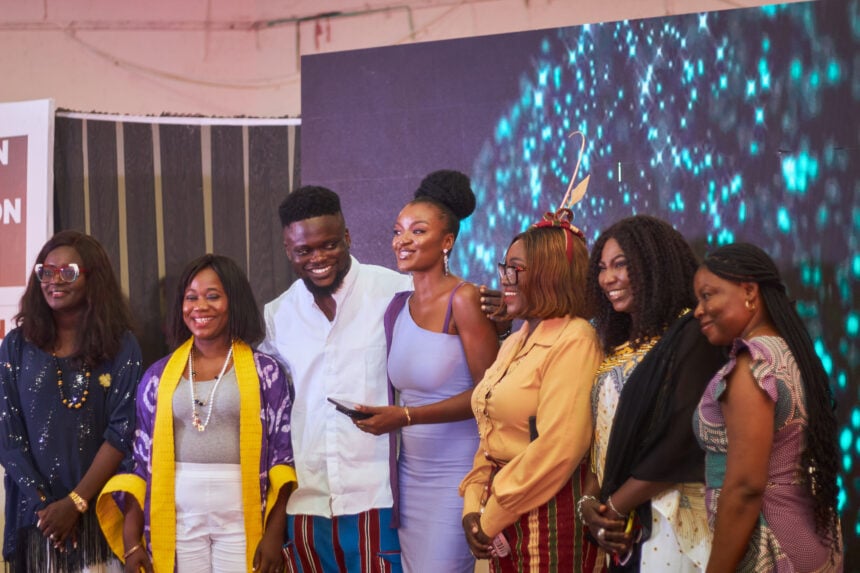Nigerian fashion brands, entrepreneurs, enthusiasts, and models have been charged to think globally in their endeavours and leverage their platforms to promote Nigerian and African culture and heritage.
Fashion and business stakeholders gave this charge in Ibadan on Saturday during the fourth edition of the annual Ibadan Urban Fashion Week (IUFW) 2025, themed ‘Promoting growth of fashion in Africa’.
Olasoji Awofesobi, a fashion entrepreneur and convener of IUFW, stated that the essence of the event is to redefine fashion in the African way and project Nigerian urban fashion culture to the world so that other cultures can appreciate Nigerian fashion and those who wear it.
Awofesobi added that the event seeks to give budding fashion designers, enthusiasts, creators, and brands a platform to showcase their talents and skills, learn and unlearn, and share their experiences.
“Fashion is not just about clothing and designs. There are the creative, business, branding, and networking aspects of it that most fashion entrepreneurs need to know. That is why we are organising workshops, panel sessions, runway shows, and networking sessions in the event,” he said.
Dr Tinu Smith, founder of Datina Designs and a business coach, in her keynote speech, stated that Nigeria is the trade centre of Africa because everyone wants to wear Nigerian-made fashion.
Smith further stated that the potential and popularity of the Nigerian fashion industry lie in its rich cultural heritage, diverse traditional textiles, and global recognition of the fashion industry, which, according to her, is worth billions of naira and contributes to the gross domestic product (GDP) of the country.
While speaking extensively about the challenges fashion business owners face in Nigeria and offering advice on how the challenges can be managed, she advised that Nigerians and Africans “should start looking inwards and start patronising made-in-Nigeria clothes and fashion products to encourage local fashion entrepreneurs.”
Smith also advised fashion entrepreneurs to master their craft, have sound knowledge of the industry, and leverage technology to build their brands, tell their story through clothes and fashion the right way, and keep advocating the Nigerian culture, adding that if they do this diligently, they will succeed in the business.
Omolola Elsie Oluwale, a human resource expert and founder of Lighthouse HR, spoke extensively on the creative, planning, and strategy aspects of the fashion business ─ how fashion entrepreneurs can draft a good business plan, secure funding for their projects, hire and retain the best staff, and sustain their businesses and brands.
Oluwale stressed that for any business, including the fashion business, to succeed, there must be a business plan, otherwise there will be no clear direction for the business or its profits.
Motolani Akintayo, a clinical psychologist and female empowerment leader; Chisom Mabia, a social entrepreneur and co-founder of Women Initiative for Family Entrepreneurial Empowerment (WIFEE); and Gwendolyn Oshoniyi, an author, media consultant, and lead consultant at LadyGwen, all spoke at the event, offering their expert opinions and advice on the topics they addressed.
There was a panel session titled ‘Brand owners and mental health’, moderated by Catherine Adeogun, a broadcast journalist and event compere. On the panel were Olasoji Awofesobi, Dr Tinu Smith, Omolola Elsie Oluwale, Chisom Mabia, Gwendolyn Oshoniyi, and Motolani Akintayo.
The panel noted that the entrepreneurial journey can be stressful and lonely, and that many mistakes and wrong decisions can be made along the way, potentially leading to breakdowns and mental disorders if not properly managed.
ALSO READ: APC Professional Forum postpones policy roundtable on Nigeria’s economy
The panellists stated that everyone has some degree of mental health issue, but the degree is what matters, which is why, according to them, mental health should be talked about every day, every time, and everywhere. In light of this, they emphasised that it is not the situation causing the mental problem ─ whether bad or good ─ that matters, but how the situation is managed.
On how to control the stress and mental exhaustion associated with running a business, the panellists advised brand owners to seek strong support and mentorship systems, maximise their personal and family time, build good relationships with their staff and clients, and protect their peace and sanity from negative people and influences.
At the event, 15 exhibitors showcased their wares and products, and there were eight designers on the runway. Models, fashion entrepreneurs, and fashion enthusiasts also graced the event.
Olasoji Awofesobi, the convener of the event, said, “The outcome of the runway was wonderful. People loved it, and it improved the designers’ visibility and patronage.”
ALSO READ TOP STORIES FROM NIGERIAN TRIBUNE






